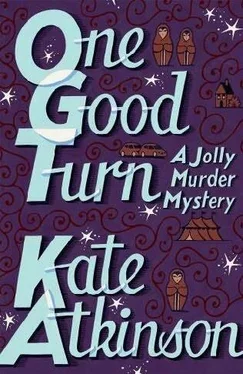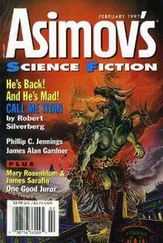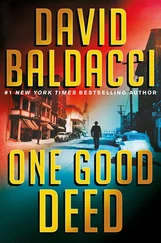Kate Atkinson - One Good Turn
Здесь есть возможность читать онлайн «Kate Atkinson - One Good Turn» весь текст электронной книги совершенно бесплатно (целиком полную версию без сокращений). В некоторых случаях можно слушать аудио, скачать через торрент в формате fb2 и присутствует краткое содержание. Жанр: Триллер, на английском языке. Описание произведения, (предисловие) а так же отзывы посетителей доступны на портале библиотеки ЛибКат.
- Название:One Good Turn
- Автор:
- Жанр:
- Год:неизвестен
- ISBN:нет данных
- Рейтинг книги:4 / 5. Голосов: 2
-
Избранное:Добавить в избранное
- Отзывы:
-
Ваша оценка:
- 80
- 1
- 2
- 3
- 4
- 5
One Good Turn: краткое содержание, описание и аннотация
Предлагаем к чтению аннотацию, описание, краткое содержание или предисловие (зависит от того, что написал сам автор книги «One Good Turn»). Если вы не нашли необходимую информацию о книге — напишите в комментариях, мы постараемся отыскать её.
One Good Turn — читать онлайн бесплатно полную книгу (весь текст) целиком
Ниже представлен текст книги, разбитый по страницам. Система сохранения места последней прочитанной страницы, позволяет с удобством читать онлайн бесплатно книгу «One Good Turn», без необходимости каждый раз заново искать на чём Вы остановились. Поставьте закладку, и сможете в любой момент перейти на страницу, на которой закончили чтение.
Интервал:
Закладка:
“What kind of things?”
“You know.”
“No, I can’t even begin to imagine.”
“Lick my boots, crawl on floor, eat like dog.”
“Nothing useful, then, like hoovering?”
Who knew-all these years Gloria could have been spanking Graham and making him eat like a dog? And be paid for it!
“In Russia I worked in bank ,” Tatiana said darkly, as if a bank were the most dangerous place in the world to work. “In Russia I was hungry.” She had very mobile features, Gloria noticed, and she wondered if it had anything to do with her clowning father.
In exchange for the cash, from somewhere inside the confines of her bra, Tatiana produced a little pink card and wrote on the back of it a mobile number and “Ask for Jojo.” She handed the card to Gloria. On the front, it was engraved in black lettering with FA-VORS-WE DO WHAT YOU WANT US TO DO! The exclamation point gave the impression that Favors would provide entertainers and balloons for a child’s party. Again with the clowns , Gloria thought. She had seen that logo somewhere, surely. Wasn’t “Favors” a cleaning agency? Gloria had noticed their pink vans around her neighborhood, and Pam had used them when her own cleaner had a bladder prolapse last year. Gloria had always done her own cleaning, she liked cleaning. It filled in the hours in a useful way.
“Yeah, sure.” Tatiana shrugged. “They’ll do cleaning if that’s what you want.” “Cleaning” seemed to take on a whole new meaning in Tatiana’s lugubrious accent, as if it were, paradoxically, a filthy (if not slightly macabre) activity.
The card was still warm from nestling next to Tatiana’s breasts, and Gloria was reminded of collecting eggs from beneath the chickens her mother kept in the back garden, long after war and necessity were done with. Tatiana tucked the money inside her bra. Gloria also frequently carried valuables within the armor of her underwear in the belief that even the boldest mugger was unlikely to brave the rampart of her postmenopausal 42EE Triumph “Doreen.”
They walked together to the entrance of the shopping mall / hospital, and on the way Gloria bought a pint of milk, a book of stamps, and a magazine from a shop. She wouldn’t have been surprised to find a car wash out the back somewhere.
The entrance was a huge air lock at the front of the building where people hung around, using their mobiles, waiting for taxis and lifts, or getting a break from whatever birth or death or routine mundanity had brought them here. A couple of patients in dressing gowns and slippers stared glumly through the rain-spotted glass at the outside world. On the other side of the glass, the smokers stared back inside, equally glum.
It felt cold outside after the hothouse atmosphere of the hospital. Tatiana shivered, and Gloria offered her own three-quarter-length green Dannimac. It made Gloria look like the clone of every other middle-aged woman, but on Tatiana the coat gained a strange un-Dannimac-like glamour. She snapped gum and smoked a cigarette while she made a call on her mobile, speaking very quickly in Russian. Gloria felt a little tug of admiration. Tatiana was so much more interesting than her own daughter.
“This was a surprise for you,” Tatiana said when she finished the call.
“Well, yes,” Gloria agreed, “you could say that. I always imagined him going on the golf course. Not that he’s actually gone yet, of course.”
Tatiana patted her on the shoulder and said, “Don’t worry, Gloria. He will soon.”
“You think?”
Tatiana gazed off into the distance like a soothsayer and said, “Trust me.” Then she gave another little shiver that seemed to have nothing to do with the weather and said, “Now I have to go.” She slipped off Gloria’s Dannimac in an elegant, if rather theatrical, way that made Gloria wonder if she had trained as a ballet dancer, but Tatiana shook her head and, handing back the coat, said, “Trapeze.”
The last Gloria saw of Tatiana, she was getting into a car with blacked-out windows that had pulled up stealthily at the curb. For a minute Gloria thought it was Graham’s car, but then she remembered where he was.
9
The nurse with the nice smile sought Martin out in the waiting room. She sat down next to him, and for a moment Martin thought that she was going to tell him that Paul Bradley had died. Would he have to arrange the funeral now that he was somehow responsible for him?
“He’s going to be a little while yet,” she said. “We’re just waiting on the doctor coming back, then he’ll probably be discharged.”
“Discharged?” Martin was astonished, he remembered Paul Bradley in the ambulance, blood from his head staining the baby-blanket shroud he was wrapped in. He still thought of him as someone who was wrestling with oblivion.
“The head wound’s only superficial, there’s no fracture. There’s no reason he can’t go home as long as you can be there to keep an eye on him for the rest of the night. We ask that when people have been unconscious, no matter how briefly.”
She was still smiling at him, so he said, “Right. Okay. No problem. Thank you-?”
“Sarah.”
“Sarah. Thank you, Sarah.” She seemed very young and small, the epitome of neatness, her blond hair smoothed into the kind of tight bun that ballerinas wore.
“He said you were a hero,” she said.
“He was wrong.”
Sarah smiled, but he wasn’t sure at what. She cocked her head to one side, a sparrow of a girl. “You look familiar,” she said.
“Do I?” He knew he had a forgettable face. He was a forgettable person, a perpetual disappointment to people when he met them in the flesh.
“Oh, you’re so short! ” one woman declared during question time after a reading last year. “Isn’t he?” she said, turning to the rest of the audience for validation, which was quick in forthcoming, everyone nodding and smiling at him as if he had just turned from man to boy in front of their eyes. He was five foot eight, hardly a midget.
Did he write like a short man? How did short men write? He had never had a photograph on his jackets, and he suspected it was because his publishers didn’t think it would help sell the books. “Oh, no,” Melanie said, “it’s to make you more mysterious.” For his most recent book, they had changed their minds, sending up a celebrated photographer to try to capture something “more atmospheric.” (“Sex him up” was the actual phrase, used on an e-mail that had been mistakenly forwarded to Martin. Or at least he hoped it was a mistake.) The photographer, a woman, had suggested Blackford Pond to him with the aim of taking moody black-and-white shots beneath winter trees. “Think of something really sad,” she instructed him while mothers with small children in tow, there to feed the ducks and swans, regarded them with open curiosity. Martin couldn’t do sad-to-order, sadness was a random visual spring tapped by accident-RSPCA adverts showing dead kittens, old documentary shots of piles of spectacles and suitcases, Haydn’s Second Cello Concerto. The maudlin, the terrible, and the sublime all producing the same watery reaction in him.
“Something in your own life,” the celebrity photographer cajoled. “How did it feel when you left the priesthood, for example? That must have been difficult.” And Martin, uncharacteristically rebellious, said, “I’m not doing this.”
“Too difficult for you?” the photographer said, nodding and making a tortuously sympathetic face. In the end the photograph made him look like a polite suburban serial killer, and the book was published, as usual, without a photograph on the jacket.
“You need more presence , Martin,” Melanie said. “It’s my job to tell you these things,” she added. He frowned and said, “Is it?” The opposite of presence was absence. A forgettable man with a forgettable name. An absence rather than a presence in the world.
Читать дальшеИнтервал:
Закладка:
Похожие книги на «One Good Turn»
Представляем Вашему вниманию похожие книги на «One Good Turn» списком для выбора. Мы отобрали схожую по названию и смыслу литературу в надежде предоставить читателям больше вариантов отыскать новые, интересные, ещё непрочитанные произведения.
Обсуждение, отзывы о книге «One Good Turn» и просто собственные мнения читателей. Оставьте ваши комментарии, напишите, что Вы думаете о произведении, его смысле или главных героях. Укажите что конкретно понравилось, а что нет, и почему Вы так считаете.












